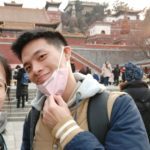Lien vers Pubmed [PMID] – 33751421
Lien DOI – 10.1007/s40121-021-00426-6
Infect Dis Ther 2021 Jun; 10(2): 853-870
Clostridioides (Clostridium) difficile infection, the leading cause of healthcare-associated diarrhea, represents a significant burden on global healthcare systems. Despite being a global issue, information on C. difficile from a global perspective is lacking. The aim of this study is to model the global phylogeography of clinical C. difficile.Using samples collected from the MODIFY I and II studies (NCT01241552, NCT01513239), we performed whole-genome sequencing of 1501 clinical isolates including 37 novel sequence types (STs), representing the largest worldwide collection to date.Our data showed ribotypes, multi-locus sequence typing clades, and whole-genome phylogeny were in good accordance. The clinical C. difficile genome was found to be more conserved than previously reported (61% core genes), and modest recombination rates of 1.4-5.0 were observed across clades. We observed a significant continent distribution preference among five C. difficile clades (Benjamini-Hochberg corrected Fisher’s exact test P < 0.01); moreover, weak association between geographic and genetic distance among ribotypes suggested sources beyond healthcare-related transmission. Markedly different trends of antibiotic susceptibility among lineages and regions were identified, and three novel mutations (in pyridoxamine 5′-phosphate oxidase family protein: Tyr130Ser, Tyr130Cys, and a promoter SNP) associated with metronidazole-reduced susceptibility were discovered on a nim-related gene and its promotor by genome-wide association study. Toxin gene polymorphisms were shown to vary within and between prevalent ribotypes, and novel severe mutations were found on the tcdC toxin regulator protein.Our systematic characterization of a global set of clinical trial C. difficile isolates from infected individuals demonstrated the complexity of the genetic makeup of this pathogenic organism. The geographic variability of clades, variability in toxin genes, and mutations associated with antibiotic susceptibility indicate a highly complex interaction of C. difficile between host and environment. This dataset will provide a useful resource for validation of findings and future research of C. difficile.
